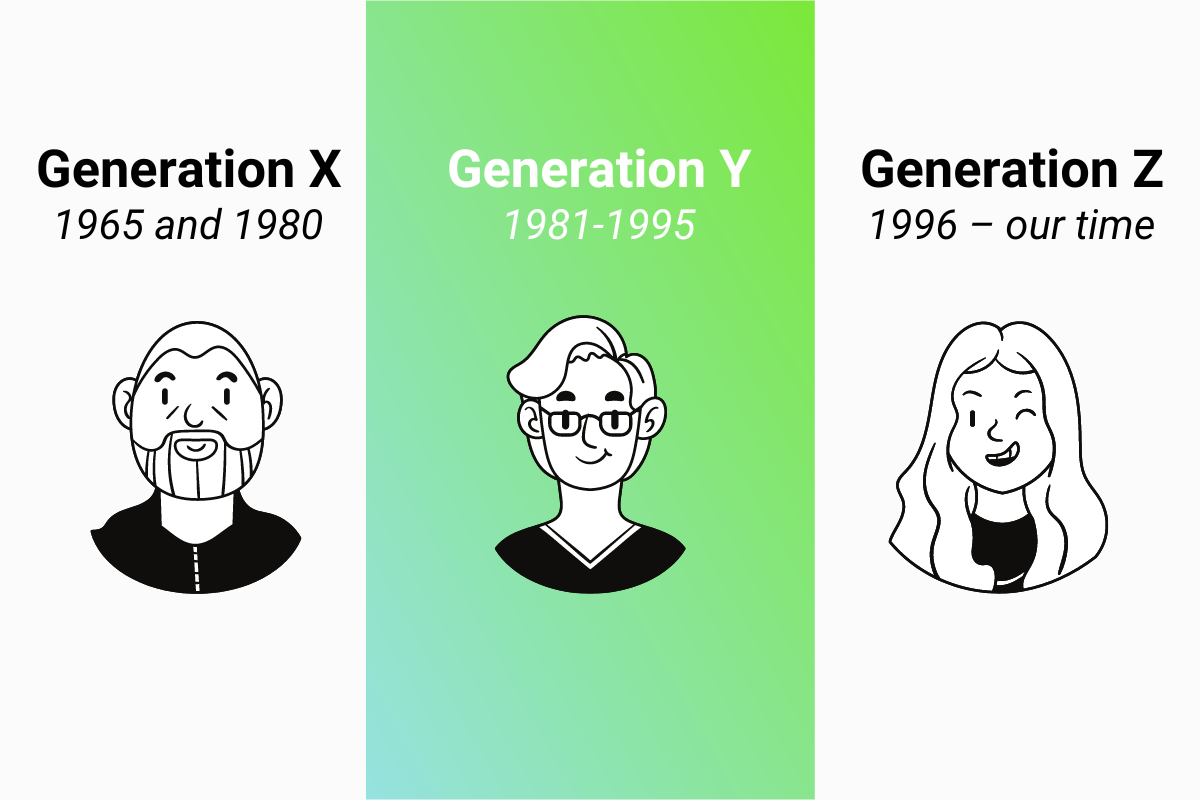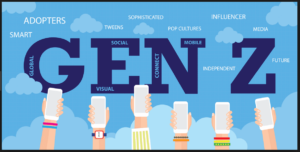In the ever-evolving landscape of generational cohorts, Millennials and Generation Z (Gen Z) emerge as influential forces shaping the future of society, culture, and commerce. With distinct characteristics, preferences, and behaviors, these two generations are redefining traditional norms and driving significant changes across various domains. In this comprehensive exploration, we delve into the defining traits, unique perspectives, and future implications of Millennials and Gen Z, uncovering insights into the dynamic interplay between these influential cohorts.
1. Introduction to Generation XYZ:
Generation XYZ encompasses Millennials and Gen Z, representing a diverse and interconnected cohort born between the early 1980s and early 2010s. This multifaceted generation spans the transition from analog to digital, witnessing rapid technological advancements, cultural shifts, and global connectivity. Understanding the nuances of Generation XYZ is essential for businesses, educators, and policymakers seeking to engage and connect with these influential demographics.
2. Understanding Millennials:
Millennials, also known as Generation Y, are born roughly between the early 1980s and mid-1990s. This cohort came of age during a period of economic prosperity, technological innovation, and cultural change. Millennials are characterized by several key traits:
- Digital Pioneers: Millennials were among the first to embrace digital technologies such as the internet, social media, and smartphones. This digital fluency and comfort with technology have shaped their communication styles, social interactions, and consumption habits.
- Work-Life Balance: Millennials prioritize work-life balance, seeking meaningful work, flexibility, and opportunities for personal growth and development. They value experiences over material possessions and prioritize work environments that offer autonomy, creativity, and purpose.
- Socially Conscious: Millennials are socially conscious and value diversity, inclusion, and social justice. They are passionate about environmental sustainability, human rights, and other pressing global issues, actively engaging in social activism and advocacy.
3. Unveiling Generation Z:
Generation Z, born roughly between the mid-1990s and early 2010s, represents a dynamic and digitally native cohort shaped by the internet, social media, and mobile technology. This cohort shares some similarities with Millennials but also exhibits distinct characteristics:
- Digital Natives: Gen Z is the first truly digital-native generation, having grown up in a world immersed in technology. They are fluent in digital communication, social media platforms, and online content creation, leveraging digital tools for learning, entertainment, and socialization.
- Entrepreneurial Spirit: Many members of Gen Z exhibit entrepreneurial tendencies, leveraging technology to launch startups, pursue passion projects, and monetize their creative talents. They are independent, resourceful, and unafraid to take risks in pursuit of their goals.
- Socially Conscious: Like Millennials, Gen Z is socially conscious and values diversity, inclusion, and social responsibility. They are passionate about environmental sustainability, mental health awareness, and other social justice issues, actively advocating for positive change in their communities and beyond.
4. Bridging the Generational Divide:
While Millennials and Gen Z share some commonalities, such as digital fluency and social consciousness, they also exhibit distinct preferences and behaviors. Bridging the generational divide requires a nuanced understanding of their unique perspectives and aspirations:
- Authenticity and Transparency: Both Millennials and Gen Z value authenticity and transparency in brand communication. They are skeptical of traditional advertising messages and prefer brands that demonstrate authenticity, transparency, and a genuine commitment to their values and beliefs.
- Personalization and Customization: Millennials and Gen Z expect personalized experiences and content tailored to their individual preferences and interests. Brands that can deliver personalized recommendations, customized product offerings, and targeted marketing messages are more likely to resonate with these discerning consumers.
- Purpose-Driven Engagement: Millennials and Gen Z are drawn to brands that prioritize purpose and social responsibility. They are more likely to support brands that take a stand on social and environmental issues and actively contribute to positive change in society.
5. Future Implications and Opportunities:
As Millennials and Gen Z continue to mature and exert influence across various domains, businesses, educators, and policymakers must adapt their strategies to engage and connect with these influential demographics. Here are some future implications and opportunities:
- Digital Transformation: Embrace digital transformation and leverage digital channels to reach and engage Millennials and Gen Z effectively. Invest in digital marketing, e-commerce platforms, and social media engagement to connect with these digitally native consumers.
- Innovation and Creativity: Foster innovation and creativity within organizations to appeal to the entrepreneurial spirit of Millennials and Gen Z. Create opportunities for autonomy, creativity, and collaboration, and empower employees to pursue innovative ideas and solutions.
- Social Impact and Responsibility: Prioritize social impact and responsibility in business practices and brand initiatives. Align with the values and beliefs of Millennials and Gen Z by supporting causes related to environmental sustainability, diversity, inclusion, and social justice.
6. Conclusion:
In conclusion, Generation XYZ encompasses Millennials and Gen Z, two influential cohorts shaping the future of society, culture, and commerce. Understanding the defining traits, unique perspectives, and future implications of these generations is essential for businesses, educators, and policymakers seeking to navigate the complexities of the modern landscape. By embracing the diverse perspectives and preferences of Millennials and Gen Z, organizations can unlock new opportunities for growth, innovation, and collaboration, ensuring a brighter and more inclusive future for generations to come.




